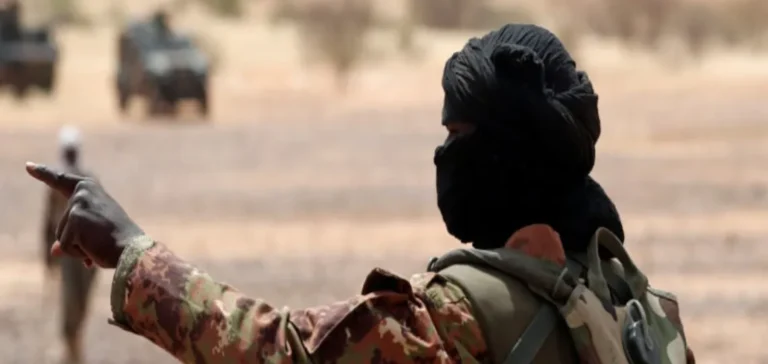Fuel supply in Mali has been severely disrupted for a month due to a blockade imposed by the Jama’at Nasr al-Islam wal Muslimin (JNIM), a group affiliated with Al-Qaeda. Attacks have targeted fuel trucks travelling from Côte d’Ivoire and Senegal, through which most of the country’s petroleum products transit. Convoys escorted by the Malian army face ambushes, with several tankers set ablaze and both drivers and soldiers killed or abducted.
Strategic reserves now depleted
The National Office of Petroleum Products (Office national des produits pétroliers – ONAP) has confirmed that its security stock, meant to cover three days of national consumption, is now depleted. Forecasts have been significantly affected by recent attacks, particularly on the Ivorian route where a dozen tankers were destroyed. Fuel transport is now operating in limited capacity, permitted only under military escort, which remains irregular due to high security risks.
Bamako no longer spared
While the capital previously held priority status in distribution, the shortage is now visible there as well. Long queues at petrol stations have grown since the beginning of the week, with widespread outages reported. Urban transporters and local traders report major losses in activity due to lack of fuel access.
Drastic reduction in electricity supply
The energy situation is also deteriorating. With the country’s dependence on thermal energy, the fuel shortage is compromising power generation. Public utility Énergie du Mali has announced that daily electricity supply has been reduced to six hours in some areas of Bamako. In towns across the interior, several areas are no longer receiving power, lacking fuel to operate generators.
Nationwide logistical consequences
Cold chain commercial activities are especially affected. In Mopti, traders report spoilage of perishable goods due to extended outages. In Ségou, the scarcity of fuel forces residents to queue as early as dawn, often without success after many hours. Butane gas is also becoming scarce in Bamako, according to multiple reports.
Emergency measures by the junta
In response to the crisis, Malian authorities have reinforced military escorts and maintained price controls at petrol stations. Official statements have promised that the situation will improve soon, without providing a precise timeline. In mid-September, Malian Prime Minister Abdoulaye Maïga told fuel distributors: “Even if we have to fetch fuel by foot with spoons, we will do it.”






















